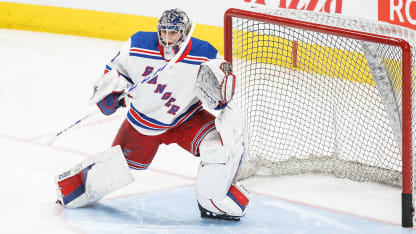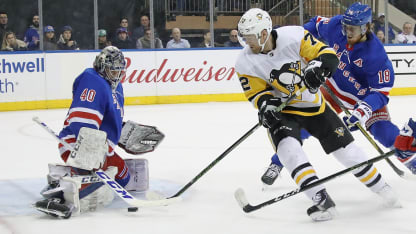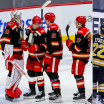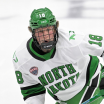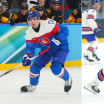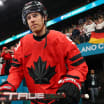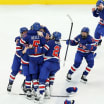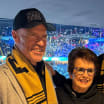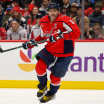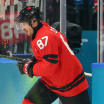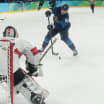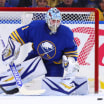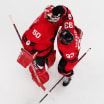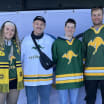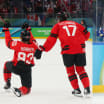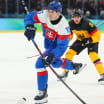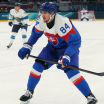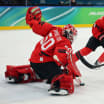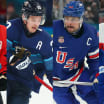Georgiev may have gone to Finland for advanced skills training, but there's something to be said for the skating techniques and instincts he developed on his own.
"We're not robots," said Boston Bruins backup Anton Khudobin, 31, who moved from Kazakhstan to Russia at the age of 13 and returns to Russia each summer to help with young goalies. "I came to a camp [for] 10-year-old kids, and they are moving on their knees. They are 10 years old, they need to start working on skates, [learn] how to skate first, how to stay on your feet, how to move laterally, front, back, T-push, C-cut."
Khudobin didn't have a goaltending coach until he was a teenager and started working with Evgeni Nabokov, a goalie who played 14 seasons in the NHL. He fears increased technical instruction at too young of an age will result in losing some of the unique, raw individual skills that have made Russian goaltenders popular again among NHL scouts.
"They are watching Bobrovsky, he is No. 1 in their hearts in Russia right now, so every young goalie looks at Bobrovsky and does exactly the same," Khudobin said. "Seeing what Bobrovsky does best, it just perfectly fits with him but maybe for other goalies it doesn't fit. You can't copy. You might steal something from a goalie and watch other goalies do this and that and thinking, 'Let's try, maybe it works for me too.' What I don't like in this is you are not Bobrovsky. You are whatever your last name is, you are who you are."
